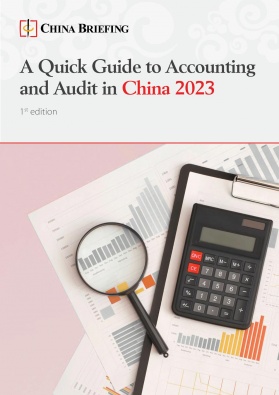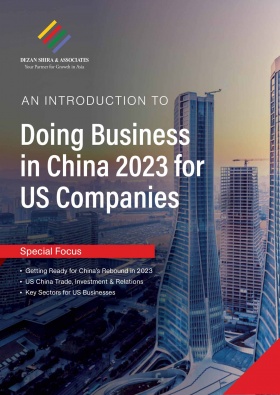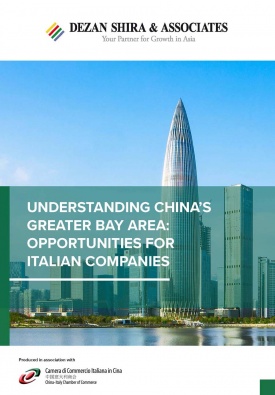Chinese Advertising Law: Market Regulator Issues Guidelines on the Use of “Absolute Terms”
China’s market regulator has released a new set of guidelines outlining the scenarios in which companies are permitted to use “absolute terms” in their advertising and promotional materials. The guidelines aim to reduce excessive or unfair punishment of companies for the use of superlative language and also offer valuable insight into how China’s advertising legislation will be enforced. Foreign businesses are advised to be aware of how and when superlative language can be used in advertising in China.
On March 20, 2023 China’s top market regulator, the State Administration of Market Regulation (SAMR), released the Enforcement Guidelines for Absolute Language Enforcement in Advertisement (the “Guidelines”).
The Guidelines were formulated in order to help market regulators properly enforce China’s advertising laws and regulations, such as the Advertising Law of the People’s Republic of China (the “Advertising Law”) and the relevant provisions of the Administrative Punishment Law of the People’s Republic of China (“Administrative Punishment Law”), as they relate to the use of “absolute terms” in advertising.
They therefore also provide valuable insight for companies in understanding how China’s advertising laws are enforced, and specifically, in which scenarios it is and isn’t permitted to use absolute terms in advertising.
What are “absolute terms” in Chinese advertising law?
According to the guidelines, “absolute terms” follow the definition set out in Article 9 Item 3 in the Advertising Law, that is, “‘national-level’, ‘the most’, ‘the best’, or other terms” with similar meanings.
The Advertising Law is intended to prevent advertisers from exaggerating aspects of their products and services that could mislead consumers or inappropriately disparage other operators. However, due to the vagueness and insufficient interpretation of the definition provided, “absolute terms” appears to generally refer to any terms that are deemed to be superlative or hyperbolic in any context, which leads to excessive punishment in practice.
The Guidelines have thus been designed to optimize law enforcement for absolute advertising terms and address the concerns surrounding excessive or misplaced penalties.
How do the Guidelines improve law enforcement regarding absolute terms?
The Guidelines require that the market supervision departments at all levels take into account the advertising content, the specific context, the degree of social harm, the facts of illegal behavior, and the subjective intent of the parties and other actual situations when enforcing relevant laws regarding the use of absolute terms in advertising in China.
To prevent “one-size-fits-all” law enforcement, the Guidelines further specify the circumstances in which the provisions of the Advertising Law on absolute terms do not apply.
It also details the circumstances under which violators won’t be punished or can be given a lighter punishment according to the law. This is to adhere to the principles of equal punishment, fairness and justice, and a combination of punishment and education.
When and where can absolute terms be used?
Marketing materials and promotional messaging
The Guidelines state that when a commodity operator or service provider publishes information on their own business premises, websites, or other media, about their own name, abbreviation, logo, time of establishment, business scope, and so on, but which does not directly or indirectly sell commodities or services, it is generally not considered advertising. Thus, the use of absolute terms in these scenarios won’t be regarded as violations to the Advertising law.
However, if absolute terms are used in this type of messaging, and the business “cannot prove their authenticity”, which may affect consumers’ rights or damage the legitimate rights and interests of other operators, the business shall be liable for investigation and punishment according to other relevant laws and regulations.
Advertising
The Guidelines describe specific scenarios in which the use of absolute terms in advertisements is not regarded as a violation, and where the company won’t be punished under the Advertising Law.
These are mostly when their use in the advertisement is not in reference to any of the products or services that the company is promoting, such as:
- When seeking only to express the service attitude or business philosophy, corporate culture, and subjective wishes of the commodity operator.
For example: “We are a small company, but operate with the attitude of the biggest company in the world”. - When only expressing the goal or pursuits of the business.
For example: “We strive to provide the best services to our clients”. - Other circumstances in which the content pointed to by the absolute term is not directly related to the performance and quality of the product promoted or service in the advertisement, and will not mislead consumers.
In addition, if absolute terms used in an advertisement refer only to the commodity that is promoted by the business itself, but does not mislead consumers or belittle other businesses, then the absolute terms are permitted. These scenarios include:
- Where the absolute terms are only used in comparison to other products of the same brand or company;
For example: “This is the best-selling foundation in our range”. - Where the absolute terms are only used to promote the specific usage of the product, such as the use method, time, and shelf life.
For example: “This beverage is best consumed within one hour of purchase”. - Where the absolute terms are included in the commodity classification terminology determined according to national standards, industry standards, or local standards, and the basis can be explained;
- Where the absolute terms are contained in the commodity names, specifications, registered trademarks or patents, and the advertisements use these commodity names, specifications and models, registered trademarks, or patents to refer to commodities to distinguish them from other commodities;
- Where the absolute terms are contained in the awards and titles assessed in accordance with relevant state regulations.
For example: “Winner of best coffee in 2021”. - When expressing the objective chronological order or promoting factual information, such as product sales volume, revenue, market share, and under specific conditions, such as time and location limitations.
For example: “This was the top-selling coffee mug on Taobao in 2022”.
Although absolute terms are permitted in the above scenarios, it should be noted that if an advertiser cannot validate the truthfulness and authenticity of the claims containing absolute terms, then they could still be liable for punishments stipulated in the Advertising Law.
Penalties for violations
The penalties for violating rules surrounding the use of absolute terms are meted out in accordance with the Advertising Law.
The Advertising Law states that anyone who publishes prohibited advertisements, including advertisements using absolute terms as defined in the Guidelines and the law itself, may be ordered to cease publishing the ad and will be fined between RMB 200,000 and RMB 1 million. In very serious circumstances, the business license may be revoked. In addition, the advertisement review agency may revoke approval documents for advertising and refuse any new applications for advertisement review for a period of one year.
Meanwhile, advertising agencies and publishers can have their advertising fees confiscated and be fined between RMB 200,000 and RMB 1 million. In serious circumstances, the business license and advertisement release registration certificate may be revoked.
There are some circumstances in which a company may get a more lenient punishment, or be exempted from the penalties. For instance, if a company is found to have violated the rules of the use of absolute terms in advertising, but it is its first infraction, the consequences are relatively mild, and if the violation is duly corrected, then the fine may be waived.
Moreover, if a business uses absolute terms in their business premises, websites, or other media, but the advertisement was only visible for a short period of time, accumulated a small number of viewers, did not lead to any harmful consequences, and was removed or corrected promptly, then the penalties may be waived. If the consequences were relatively minor, then the penalty may be reduced or mitigated.
The following circumstances are generally not considered to be a minor violation or have less harmful consequences:
- When absolute terms are used in relation to curative effect, cure rate, and effective rate appear in the advertisements of medical treatment, cosmetology, pharmaceuticals, medical equipment, health food, and formula food for special medical purposes;
- When absolute terms related to an investment rate of return, investment security, and so on are used in advertisements for products with expected return on investment, such as investment promotion; and
- When absolute terms related to education and training institutions or the effects of education and training are used in education and training advertisements.
The Guidelines state that market supervisory departments may formulate lists of minor violations for the use of absolute terms in advertising that are exempt from punishment.
Considerations for compliance in a fairer legal environment
As China seeks to strengthen its consumer rights, more attention is being paid to misleading or false advertising. This means that advertising practices are coming under closer scrutiny, and more laws and regulations are being passed to strengthen the current legal framework.
In recent years, several foreign brands and companies have come under fire for misleading or false advertising. In 2021, Canada Goose was publicly criticized and fined by the Chinese government precisely for using absolute terms in their advertising – they claimed that their products were made from “the warmest material from Hutterite”.
However, inconsistent enforcement of advertising rules and relatively vague definitions has made compliance more difficult for companies. As stated in a media Q&A released by SAMR on the latest Guidelines, local market regulators have had a tendency to adopt an overly simplistic or “one size fits all” approach to supervising the use of absolute terms in advertising, resulting in excessive punishment.
These Guidelines were therefore formulated in part in order to protect companies from unfair penalties by providing specific scenarios in which these words are permitted. Moreover, the reduction or waiving of penalties for minor infractions will also help with fairer enforcement of the rules, especially for smaller companies with fewer resources.
Despite this, in general, it is best to avoid using any superlatives or hyperbolic language in advertising and marketing as much as possible in order to avoid the risk of violating advertising regulations. Where it is necessary, it is best to closely read these latest Guidelines to ensure that their use fall within the permitted scope.
In addition, having a robust advertising review process with staff members who are familiar with China’s advertising laws is important to ensure that all advertising and marketing language is permissible. It is also imperative that businesses ensure that the information portrayed in their advertising and marketing is truthful and accurate, to avoid inadvertently breaking the rules.
About Us
China Briefing is written and produced by Dezan Shira & Associates. The practice assists foreign investors into China and has done so since 1992 through offices in Beijing, Tianjin, Dalian, Qingdao, Shanghai, Hangzhou, Ningbo, Suzhou, Guangzhou, Dongguan, Zhongshan, Shenzhen, and Hong Kong. Please contact the firm for assistance in China at china@dezshira.com.
Dezan Shira & Associates has offices in Vietnam, Indonesia, Singapore, United States, Germany, Italy, India, and Russia, in addition to our trade research facilities along the Belt & Road Initiative. We also have partner firms assisting foreign investors in The Philippines, Malaysia, Thailand, Bangladesh.
- Previous Article China Resumes Accepting Applications for Commercial Performances
- Next Article Childcare Leave in China (Last Updated on March 24, 2023)




























